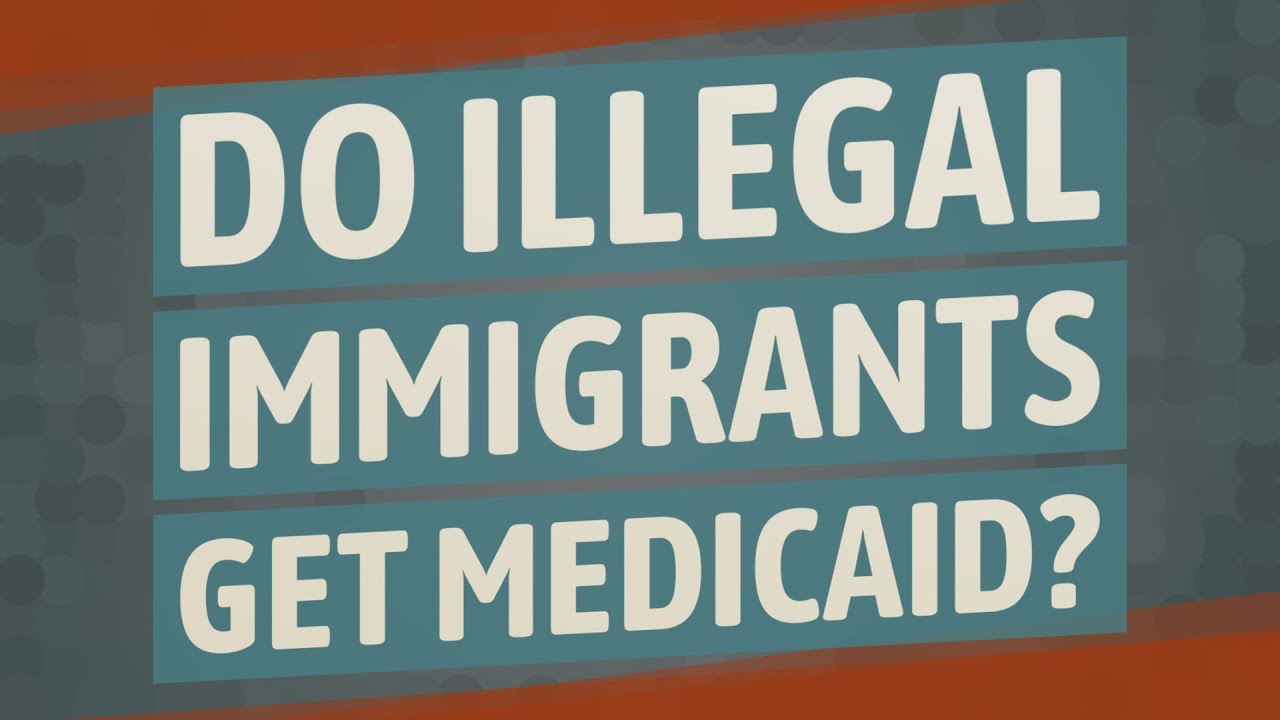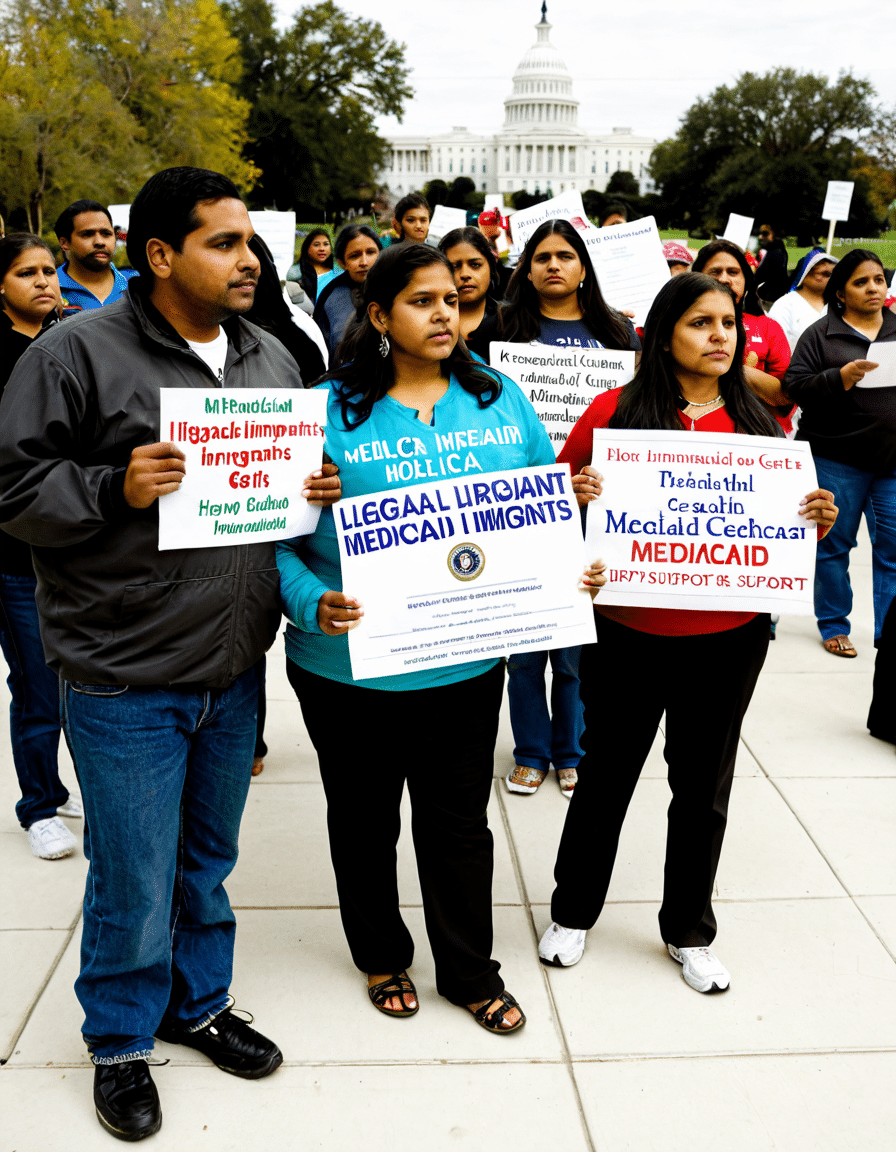In the intricate landscape of healthcare in the United States, a pressing question arises: do illegal immigrants get Medicaid? Understanding the accessibility of Medicaid for undocumented immigrants helps illuminate critical aspects of health equity and social justice. As parents grappling with the unbearable pain of losing a child to addiction or supporting a child struggling with substance abuse, you deserve to know where individuals stand when it comes to essential health coverage.
Medicaid is a program that aims to provide health insurance to low-income people and families, but it varies from state to state. This means that access to Medicaid isn’t guaranteed, particularly for those without legal immigration status. So, let’s take a closer look at Medicaid eligibility and what options are available for undocumented immigrants.

Understanding Medicaid Eligibility: Do Illegal Immigrants Get Access?
To truly grasp how Medicaid works for unauthorized immigrants, we must examine who qualifies for the program based on their immigration status:
Understanding this eligibility landscape is crucial, as it sets the stage for the deeper implications of healthcare access among those without legal immigration status.

Can Illegal Immigrants Get Medicaid? Exploring 5 Key States
Now, let’s dive deeper into how illegal immigrants can get Medicaid access across five significant states, each approaching the issue quite differently.
1. California – A Leader in Coverage
California shines as a beacon of progressiveness regarding healthcare for undocumented immigrants. Through its Medi-Cal program, people under 26 can access full-scope benefits without facing discrimination based on immigration status. Additionally, this progressive approach extends to undocumented immigrants aged 50 and older, demonstrating California’s commitment to inclusive healthcare.
2. New York – Extensive Emergency Care
In New York, undocumented immigrants can access emergency Medicaid services. These services cover life-threatening medical conditions regardless of immigration status. However, it’s important to note that full-scope Medicaid isn’t regularly available for non-citizens. This limitation highlights the ongoing challenges in balancing healthcare needs and immigration policies.
3. Illinois – Focus on Healthcare Equity
Illinois is pushing for better healthcare equity through its “Health Benefits for Immigrants” (HBIM) pilot program. This initiative provides access to full Medicaid benefits specifically for undocumented individuals aged 65 and older. By addressing the unique health needs of older immigrants, Illinois is making strides in fostering equitable access to healthcare.
4. Texas – Limited Access
Texas has some of the stricter eligibility regulations when it comes to Medicaid. While emergency Medicaid is indeed available, complete access remains elusive for undocumented immigrants. Instead, the state encourages community health centers, allowing undocumented individuals to seek primary care services without the barriers of insurance requirements.
5. Massachusetts – Emergency Services Only
Similarly to Texas, Massachusetts limits coverage to emergency Medicaid benefits for illegal immigrants. This coverage pertains only to immediate health needs, leaving crucial preventive services out of reach for many. The gap in access underscores the necessity of advocating for reforms that prioritize health for all community members.

The Impact of Medicaid Access on Health Outcomes Among Illegal Immigrants
Enhanced Medicaid access—or lack thereof—has meaningful consequences for the health outcomes of illegal immigrants. When healthcare access is limited, individuals are less likely to pursue preventive care and often delay vital treatment for serious medical conditions. States that provide access to undocumented immigrants through Medicaid, like California and Illinois, typically see fewer emergency room visits and improved public health outcomes.

The Future of Medicaid for Illegal Immigrants: Policy Trends and Public Opinion
As we gaze into the future, trends indicate a potential shift towards more inclusive Medicaid programs for undocumented immigrants, fueled by a growing understanding of the benefits of universal healthcare access. Public sentiment is gradually changing, thanks in part to advocacy efforts that spotlight the challenges facing immigrant communities.

Addressing the Challenges: Innovative Solutions and Community Engagement
To genuinely tackle the healthcare gap for uninsured immigrants, innovative solutions and strong community engagement are pivotal. Nonprofits and community organizations are at the forefront, connecting unauthorized residents with local resources and healthcare options designed to improve access.
In closing, the question of do illegal immigrants get Medicaid is wrapped in broader discussions of health equity and social justice. With continuous advocacy and policy discourse, the landscape for undocumented individuals seeking healthcare is shifting towards greater inclusivity. As parents navigating the devastating realm of addiction, understanding these frameworks can empower you and strengthen your communities, reminding us all that every individual deserves access to health and wellness, no matter their immigration status.
To learn more about supporting those dealing with addiction, visit Mothers Against Addiction for excellent resources and community support. Together, we can foster resilience and compassion through the journey of healing.
Do Illegal Immigrants Get Medicaid?
The Basics of Medicaid Access
So, do illegal immigrants get Medicaid? The answer is a bit complicated. In general, Medicaid is a state and federal program designed to provide health insurance for low-income individuals. However, most states restrict access to Medicaid for undocumented immigrants, mainly offering it only in emergencies. It’s a hot topic with implications for public health and community relations. For instance, emergency services remain available to everyone, regardless of immigration status, but that’s not the same as comprehensive healthcare coverage. Some families face challenges that make navigating these options tricky, similar to the feelings captured in the third step prayer aa, which encourages acceptance and self-reflection.
State Variability and Interpretations
Interestingly, some states have taken different approaches. A few have expanded Medicaid to cover undocumented children or pregnant women, allowing for more thorough access to prenatal care. This variance means that where you live really matters; policies can differ widely from one state to another. States like California lead with more inclusive policies, while others remain more restrictive. It’s kind of like keeping an eye on satellite updates, like the Idalia spaghetti Models for weather tracking; you must keep informed about what each state is doing.
A Broader Perspective
It’s crucial to connect the dots between immigration status, healthcare access, and the potential for addiction or other health issues, especially for families with limited support. Understanding these links could promote better health outcomes, which echoes the purpose behind many health initiatives, including the Dfc program. Moreover, you might be surprised to know that some community programs fill the gaps. These can be incredibly beneficial to families in need, akin to the unexpected joys of discovering a hidden talent in something like Brandon Sklenar Movies And tv Shows. Just like in film, community stories matter, and they often reveal larger truths about society and its challenges.
In conclusion, while the question “do illegal immigrants get Medicaid” has a straightforward answer, the nuances make it vital to stay updated. Education and awareness about available resources, as well as the risks associated with addiction—illustrated by the serious concerns around muscle relaxer Pills, for instance—are essential for supporting families in crisis. Knowing where to find help can truly be a lifeline, much like knowing how to perform a cronus zen update firmware can elevate your gaming experience.





























